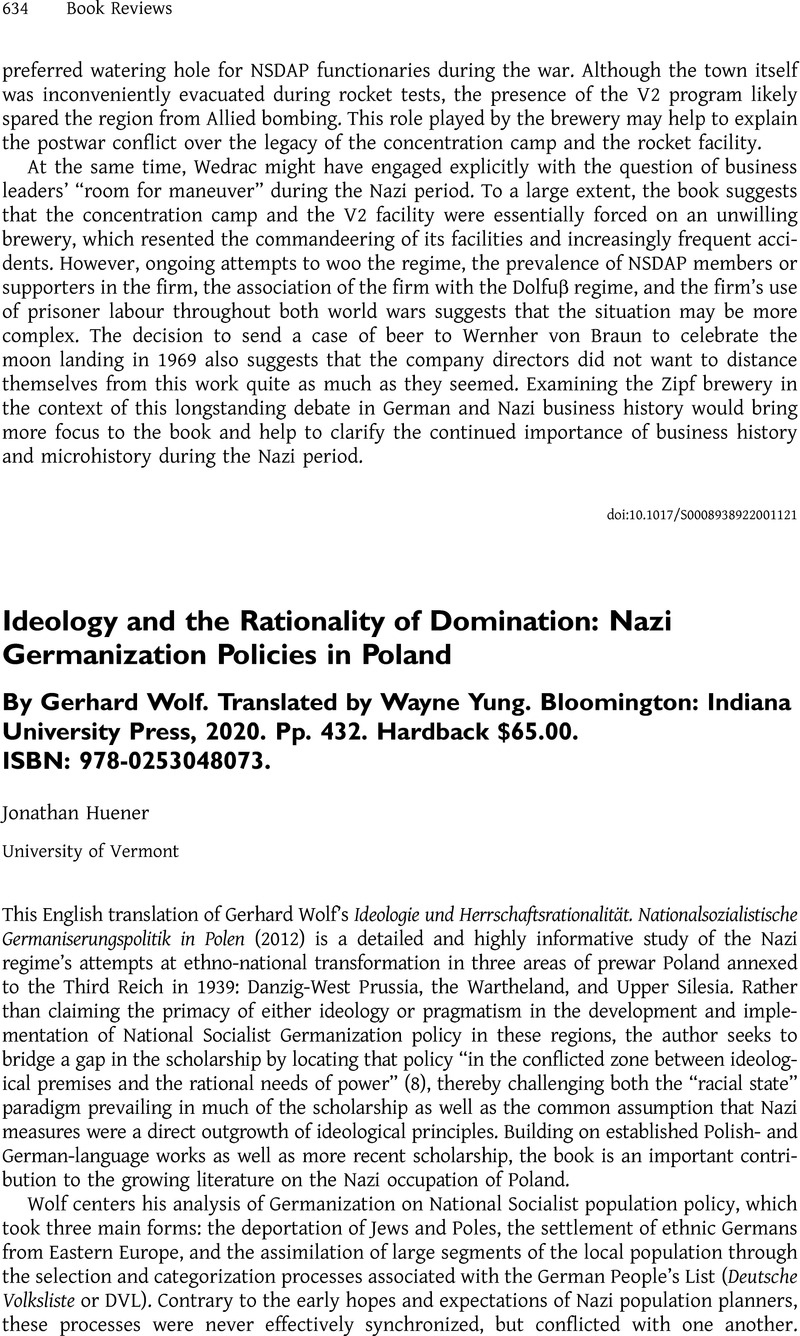No CrossRef data available.
Article contents
Ideology and the Rationality of Domination: Nazi Germanization Policies in Poland By Gerhard Wolf. Translated by Wayne Yung. Bloomington: Indiana University Press, 2020. Pp. 432. Hardback $65.00. ISBN: 978-0253048073.
Review products
Ideology and the Rationality of Domination: Nazi Germanization Policies in Poland By Gerhard Wolf. Translated by Wayne Yung. Bloomington: Indiana University Press, 2020. Pp. 432. Hardback $65.00. ISBN: 978-0253048073.
Published online by Cambridge University Press: 05 January 2023
Abstract
An abstract is not available for this content so a preview has been provided. Please use the Get access link above for information on how to access this content.

- Type
- Book Review
- Information
- Copyright
- Copyright © The Author(s), 2022. Published by Cambridge University Press on behalf of Central European History Society of the American Historical Association


